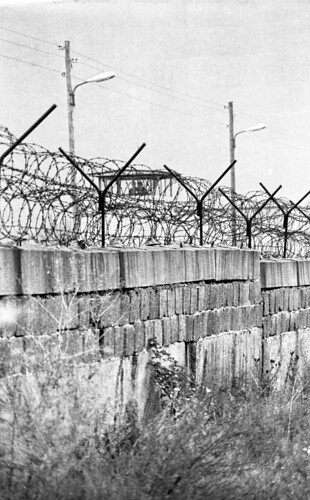This is a piece I wrote for the Prague Post back in 1999.
A generation has passed since the annus mirabilis of 1989, when the Western world erupted into spontaneous jubilation as the Berlin Wall came tumbling down and the Czech Republic underwent its Velvet Revolution. For 25 years, the wall had been a symbol of the face-off between capitalist-driven democracy and socialist-driven totalitarianism, and its demise signaled the end of the Cold War. It ushered in a European rejuvenation that saw free spirits come out of hibernation - and, in Vaclav Havel's case, out of jail - to challenge the world to take the next step forward toward a "global civilization" of tolerant co-existence.
But in America, though there was a great sense of relief, public response to the wall's fall was rather restrained by comparison. Coming out of an era of industrial mergers, union-bashing, high unemployment and recession, most Americans did not see the correlation of the European events to their own lives. Thus, in 1991, when Jeanne Kirkpatrick, the former U.S. ambassador to the UN, opened a speech on the Cold War's demise with, "We won!" Americans accepted her words at face value, but there were no parades down Main Street, U.S.A. For many, capitalism during the Cold War era, had not made America "a kinder, gentler" place. They did not hear her simple exclamation for what it was - the starting pistol at a gold rush for industrialists, who saw the wall's fall as a symbol of capitalism's moral rectitude and a mandate for gleeful expansion. In just a few short years, Havel's "global civilization" would be foreshortened, for commercial purposes, to "globalization."
"Even as the newly released dissident Havel was being popularly enshrined amid calls of "Havel na Hrad" (Havel to the Castle), and even as the 'great man' was warning his compatriots not to settle for superficial solutions to the formidable task of modernizing the republic and making it a spiritually rich component of the global civilization he envisioned, real estate tycoons were pouring into the city, all-night sports bars and discos were opening up on side streets off Wenceslas Square and golden arches glowed in the shadow of the Castle. Even Kafka rolled over in his grave.
Since those heady days that sparked perhaps the last great revolution of this millennium, many of the macro issues that have plagued humanity like a head cold for centuries have erupted in Europe again. By the time of Havel's 1995 Harvard commencement address, in which he urged a global spiritual and moral reawakening to counterbalance the impersonal nature of technological progress that has mired us in postmodern relativism, Yugoslavia had already violently disintegrated into civil war, the Soviet Union had collapsed of its own dead weight, the Baltics were under siege and East German problems had staggered the strongest economy in the world.
The sad paradox of the wall's collapse is that, in the end, democracy did not win the Cold War - capitalism did, the laissez-faire type, with its trickle-down oligarchic values and anti-government rhetoric. Thus, at a time when Eastern Europeans especially are looking to build fresh, true democracies, they watch stunned as model Western societies are pushing government away. Meanwhile, in Asia and the Middle East, totalitarian governments still abound, but now use methods of control that mimic, co-opt, and even mock democratic principles of free choice, seeing such principles as little more than marketing hype not to be taken seriously. So once again, economics, rather than idealism, determines a nation's political philosophy. It is a situational irony that G.W.F. Hegel and Karl Marx would have appreciated.
As populists continue to pop up everywhere like moles, leading us toward more stupid foreseeable wars, it must make retired Cold War generals, East and West, nostalgic for the good old days of brinkmanship. Certainly, it is to the discredit of democratic capitalists everywhere that such generals have been acceded the luxury of revising the past in the possibilities of the future, as they move from regret to nostalgia.





